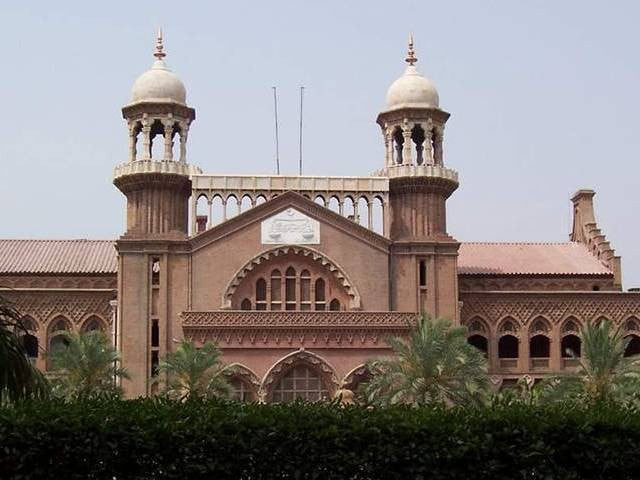LHC seeks Punjab governor's response over CM oath delay
Justice Bhatti turns down SCBA president's request to hear the case today instead of tomorrow

Lahore High Court (LHC) Chief Justice Muhammad Ameer Bhatti on Thursday directed the Punjab advocate general to assist the court after taking instructions from Punjab Governor Omar Cheema regarding a delay in the administration of the oath to Chief Minister-elect Hamza Shehbaz.
Advocate General Punjab Ahmad Awais was told to assist the high court on Friday with the response from the governor.
After the governor’s reluctance to administer the oath, Hamza had moved the LHC to avert a "constitutional crisis". In his petition, Hamza had pleaded that the governor violated his constitutional duties as well as the court order by delaying the administration of the oath to the CM-elect.
The election for the CM was held on April 16 after the order of the LHC and Hamza emerged victorious by bagging 197 votes in the house of 371 members.
Read Sarwar gets the boot as govt appoints Omar Cheema as governor Punjab
After his victory, Acting Speaker Dost Muhammad Mazari – who chaired the session in the speaker’s stead because Pervaiz Elahi was one of the nominees— had intimated the Punjab governor about the result as per legal requirements.
Governor Cheema, however, has not invited Hamza for oath and seemed to follow the party – former ruling PTI – line.
During the hearing of the case, CJ Bhatti took exception to the request made by Supreme Court Bar Association (SCBA) President Ahsan Bhoon who had asked the court to fix the case for today instead of tomorrow. “The assistant advocate general is here to assist the court,” said Bhoon.
CJ Bhatti retorted why people always keep demanding urgency when matters are in the courts. He added the courts follow a procedure and rule of law. “I am unable to comprehend that when the courts say ‘let the system takes its course’, you people refuse to let it work,” he said while expressing annoyance.
Constitutional crisis
Earlier this week, Hamza Shahbaz had filed a petition in the high court and made the Punjab governor as well as the Punjab chief secretary respondents.
He had stated that he had been elected as the Punjab chief minister on April 16, during a provincial assembly session held under the LHC’s direction and that he had secured 197 votes out of 371.
Hamza had reiterated that he had won the simple majority in the contest, after which the Acting Speaker Sardar Dost Muhammad Mazai provided copies of the result to Governor Cheema to fulfil the requirements of Rule 21 of the Rules of Procedure.
Read more LHC rejects Elahi’s petition, allows deputy speaker to oversee CM election
The petitioner had maintained that the governor had, however, been reluctant to administer the oath to him as Cheema was following his vested interests.
He had contended that it was constitutional that the chief minister-elect was administered oath on the same day as his election without any delay, but that it was “unfortunate that we live in the eras of president and governors, who are shelled in their narrow political landscape and have failed to appreciate the grace expected from such esteemed constitutional roles and offices”.
He had maintained that the incumbent Punjab governor was in sheer disregard for the Constitution and constitutional convention.
The petition had further stated that the chief secretary was a former office-bearer and worker of PTI and that it was unfortunate that he was insistent on creating a constitutional crisis that ridiculed the spirit of constitutional commands and parliamentary democracy, and also exposed the populace to further economic and political turmoil.
He had claimed that the position of the president as the head of state and the position of the governor as the head of province was similar to that of the English constitutional monarch, wherein a leader does not and cannot act on his own initiative but must act in accordance with the advice of the prime minister or in the latter case, the chief minister or his cabinet.
“The governor in the performance of his functions is bound to act on the advice of the chief minister or his cabinet, but this is subject to the provisions of the Constitution. Thus, where a constitutional provision clearly designates a particular obligation/duty in no unclear terms, the governor is duty-bound to perform the same in the manner defined in the Constitution,” the had petition stated.


















COMMENTS
Comments are moderated and generally will be posted if they are on-topic and not abusive.
For more information, please see our Comments FAQ